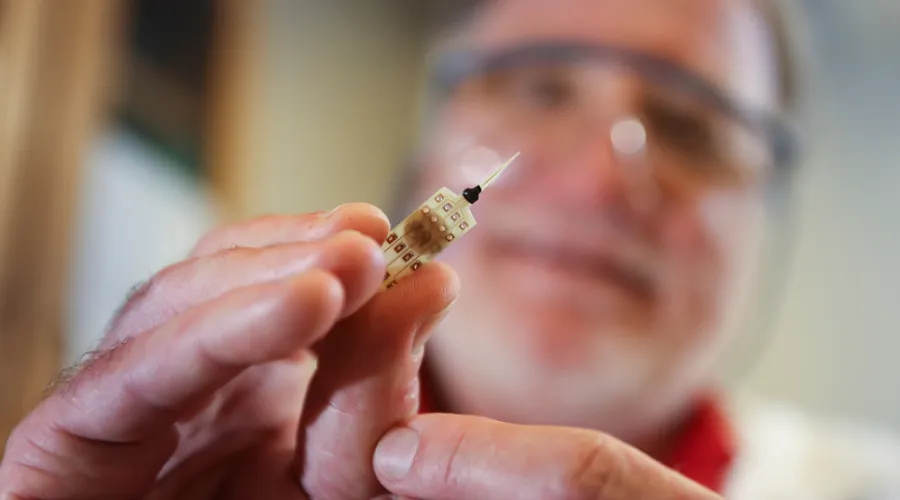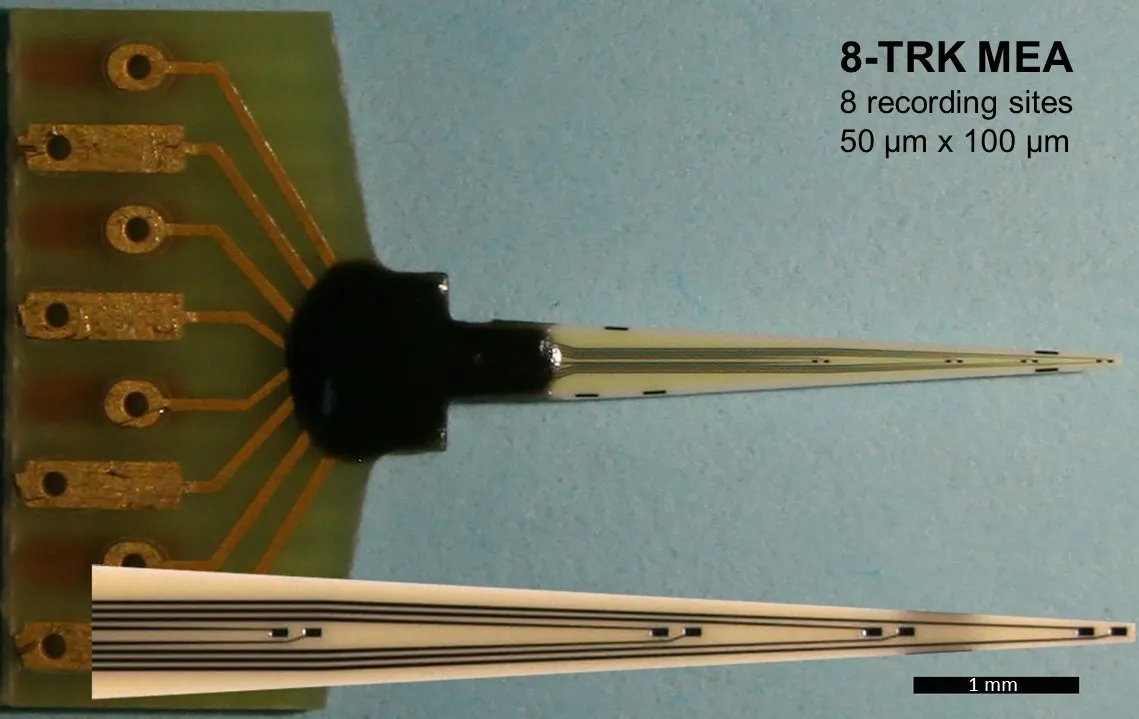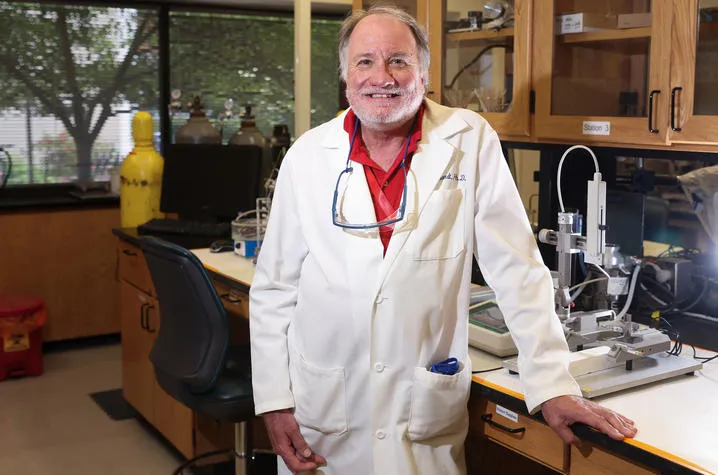
Center for Microelectrode Technology

About the Center for Microelectrode Technology
The Center for Microelectrode Technology is an outgrowth of research conducted in the past at the University of Colorado and during recent years at the University of Kentucky (UK) College of Medicine Department of Anatomy and Neurobiology. The Center for Microelectrode Technology is focused on the development and use of state-of-the-art microelectrode techniques for in vivo studies of brain function. The technology under development utilizes novel microelectrodes that are implanted in various regions of animal brain to monitor specific neurotransmitters with computerized recording and processing of the resulting signals. Plans include the development and refinement of sensors to measure the neurotransmitters dopamine, norepinephrine, serotonin, glutamate, acetylcholine, GABA, nitric oxide and many other molecules such as lactate, aspartate, glucose, alcohol and adenosine. A grant from The National Science Foundation (NSF) has been used to establish a "Center Without Walls" for promoting:
- The development of microelectrode technologies
- Collaborative projects with academic scientists
- The training of researchers in microelectrode-based methods
- Relationships with industry to facilitate instrumentation development
NSF-sponsored centers of this type usually are located on academic campuses other than medical centers, so the recognition of unique capabilities at the UK Academic Medical Center is especially noteworthy.
Organization/Affiliation
The Center for Microelectrode Technology, based at the University of Kentucky Academic Medical Center in the Department of Neuroscience was established in 1991.
Faculty/Personnel
A variety of center associates have been affiliated with CenMeT. Personnel includes postdoctoral fellows, graduate students, numerous research assistants, and many classified and unclassified staff members.
Teaching
Visiting scientists, postdoctoral fellows, students and established investigators have been trained in the applications of microelectrode techniques. The faculty also lectures in graduate courses offered through a variety of departments and academic institutions. Training courses are offered in Lexington, KY for the purpose of training researchers to utilize the techniques developed by CenMeT.
